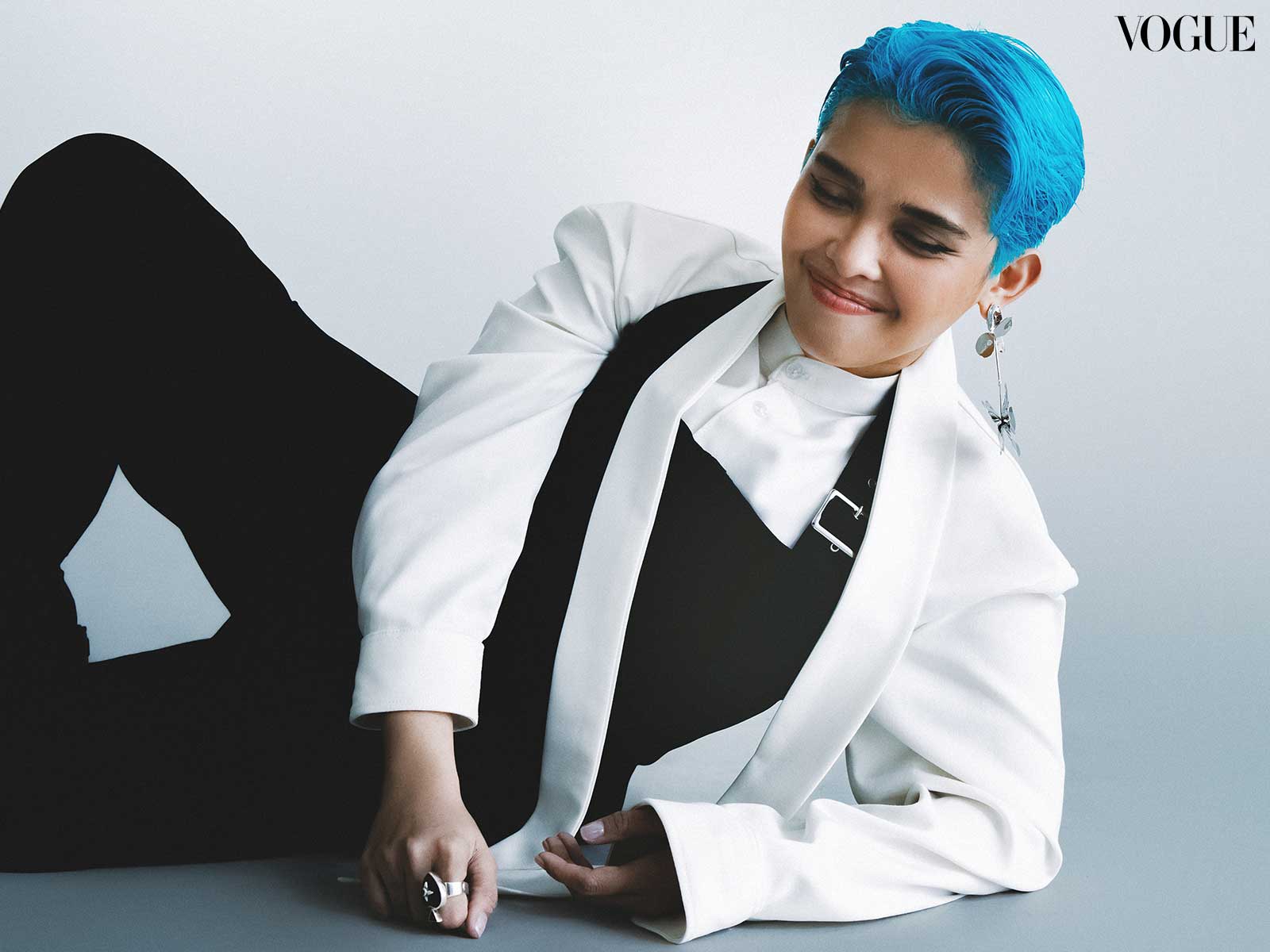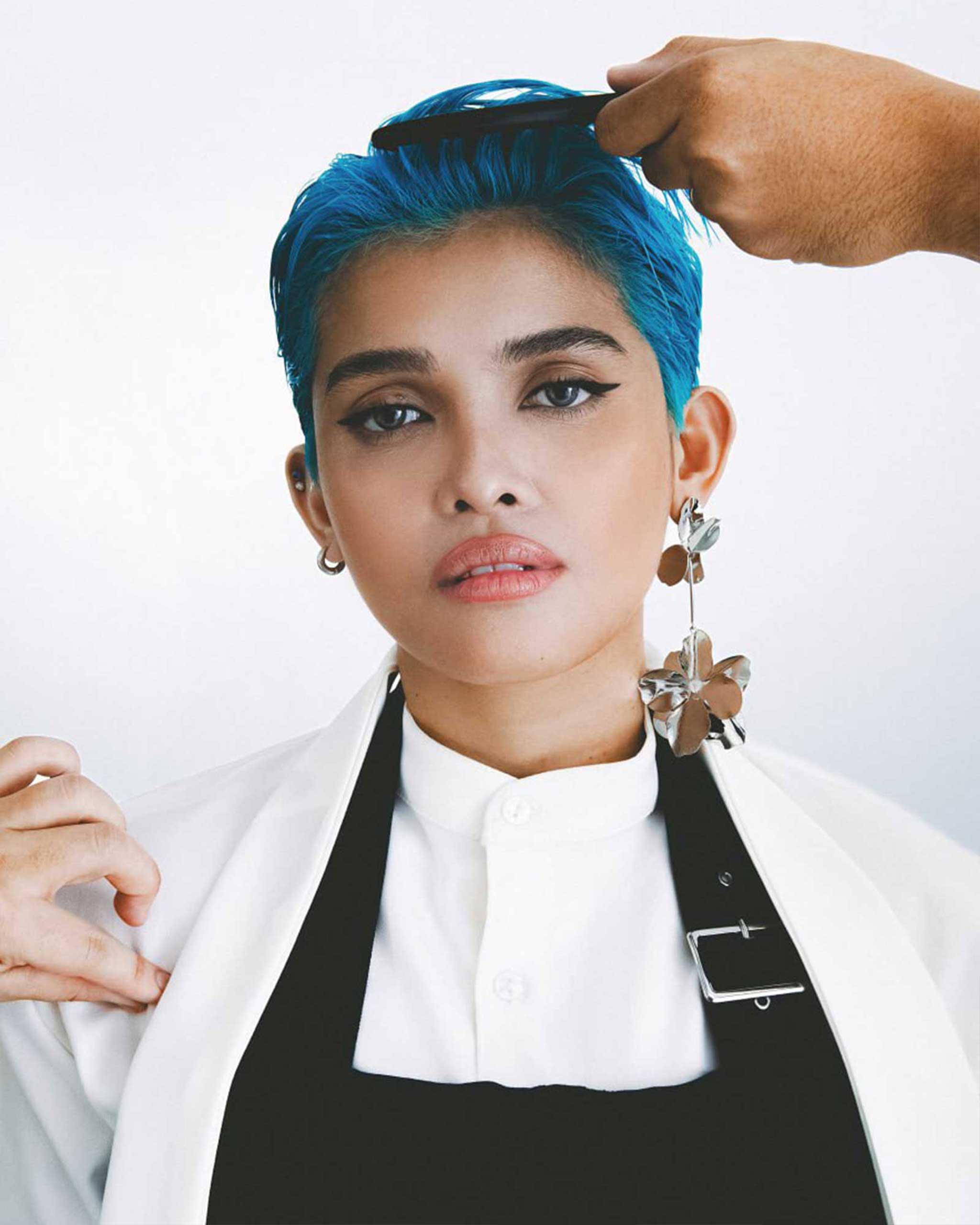Styling by Neil De Guzman. Photographed by Joseph Bermudez for the May 2024 Issue of Vogue Philippines.
The Mindanaoan musical artist opens up to Vogue Philippines about prioritizing her own well-being through self care—which includes a popular handheld game.
Known for her powerful vocals and electrifying performances, KZ Tandingan seems to have it all together, especially when she’s on stage. However, the singer-songwriter recognizes that due to the nature of her work, stress is often an unwelcome companion. At this point in her career, she has found it essential to nurture her physical, emotional, and mental well-being.
In an exclusive interview, Tandingan shared her personal strategies for maintaining work-life balance while taking care of her health.
Prioritize rest and sleep.
Despite the hectic nature of her schedule, she emphasized the importance of adequate sleep in maintaining her vocal health and overall vitality. “I always tell myself to rest, but I don’t. The biggest enemy I fight is when I don’t get enough sleep,” she confessed, saying that sleep deprivation makes her lose her voice. “So, I always try to sleep, even if it’s just two or three hours.”
Make an effort to ask for medical help, especially when necessary.
Tandingan, who currently deals with chronic atrophic gastritis, has recently taken proactive steps to balance her diet and increase her water intake. However, these lifestyle modifications were challenging. “It’s a very hard journey for me,” Tandingan says. “When I turned 30, my body started feeling everything. [My husband] TJ and I really talked about being serious in taking care of ourselves because our bodies don’t recover as quickly anymore, especially when we’re exhausted.”
Tandingan also reflects on her attitude to asking for help, and how it varies from the past to her current outlook. “I used to say, ‘Let’s not go to the doctor. It’s okay, I’m fine,’ but now it’s like, “No, if we need help, ask for help.’” Tandingan shares. “I want to really focus on my health because if I’m in this business for a long time, then I have to stay healthy. That’s the goal.”

Relieve stress with activities and games.
Beyond physical health, KZ also shares some of her ways in managing stress and safeguarding her mental wellbeing. Despite the incessant chatter of her mind, she finds solace in playing Tetris. “My ultimate stress reliever is playing Tetris. Even if I’m not physically doing anything, my mind never rests, my mind never sleeps,” Tandingan confides. “I worry now about my problems which will happen in 2037. I’m always stressed, but whenever I play Tetris, it doesn’t give me time to think, and I feel my body loosening up.” Tandingan says that to her, it’s a better alternative to stress-relief than getting a massage. “When I’m getting a massage, I’m not relaxed because my mind is always thinking about something else.”
Nurture conversations with family and friends about mental health.
Tandingan emphasized the importance of seeking support and being open about mental health struggles, drawing strength from her family and community. Although she recognizes that traditional families and perspectives on mental health predominantly exist in the Philippines, Tandingan appreciates that conversations about mental health are welcomed in her and her husband’s families. “I grew up in a conservative Christian home so before, other people would say, ‘Just pray about it,’ which is not a bad thing, but it’s also something very real,” Tandingan shares. “So when I get to talk about whatever I’m going through, I also have people to lean on, and I’m assured that I’m not carrying whatever burden it is alone.”
Tandingan credits her progress to acceptance about her mental issues to some of her peers in the music scene. “Late last year, I talked to some of my older sisters in the industry, and they opened up to me about what they were going through,” she says. “They encouraged me to get help by giving me contacts of professionals. It was a process for me—I also had to pray about it, and really accept that I need help.”
By destigmatizing conversations around mental health and seeking professional help when needed, Tandingan exemplifies resilience and self-compassion. “I have this platform, and I want to inspire people,” Tandingan says. “It’s hard to inspire people when you yourself don’t feel inspired because you’re going through something.”
